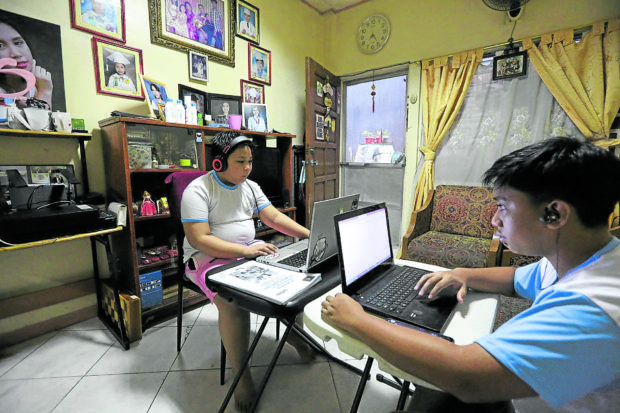COVID-19 vaccination of minors also aims to prevent mental health issues – Galvez

Vaccinating minors, whose movements have been restricted for almost two years, would allow them to resume normal activities sooner and prevent mental health problems from developing, according to Secretary Carlito Galvez. (File photo by MARIANNE BERMUDEZ / Philippine Daily Inquirer)
MANILA, Philippines — Vaccinating minors against COVID-19 is also a way to prevent them from developing mental health problems by allowing them to resume normal activities, Secretary Carlito Galvez Jr. said in a taped briefing with President Rodrigo Duterte that aired late Monday night.
“We want to mitigate the social risk among children, parents, and the elderly. We see these young people and their mental health is suffering,” Galvez, the chief implementer of the government’s COVID-19 response, said, speaking in a mix of English and Filipino.
ADVERTISEMENT
“We really need to give them some leeway so that they can move around to play and to study and also to socialize with their friends,” he added.
According to Galvez, those aged below 18 years old are really among the most restricted age brackets as classes have shifted to a remote setup. And when strict lockdowns are in place, only those working with essential industries are allowed to go out.
“Also, to recover the lost time of our children. We have seen that for almost two years they have been restricted. We saw that. Even if we ask psychologists, we saw that depression cases rose by more than 300 to 400 percent, most of them have developed depression,” he said.
“So cases of depression and also suicidal tendencies have increased among our children,” he added.
In August 2021, the National Center for Mental Health said that the calls it had received about mental health concerns had increased four times since the start of the COVID-19 pandemic — regardless of age.
Last March, the United Nations International Children’s Emergency Fund (Unicef) said the stay-at-home policies enforced by the government could have a negative impact on the children’s growth and mental health.
READ:
The other surge: Mental health hotlines getting busier
READ:
Unicef worries over new stay-at-home policy for minors in Metro Manila
The national government has already started vaccinating minors aged 12 to 17 against COVID-19, although only those with comorbidities are being prioritized.
ADVERTISEMENT
As of Monday, 9,928 minors had been inoculated with the COVID-19 vaccine — and only 10 minor adverse reactions were recorded.
READ:
DOH logs 10 minor adverse reactions out of 9,928 vaccinated children vs COVID-19
Earlier, the Department of Health (DOH) said it had started to consider expanding pediatric vaccination outside of Metro Manila by the end of the week.
READ:
DOH eyeing COVID-19 vaccination rollout for children beyond NCR
According to Galvez, another benefit of vaccinating minors is that it will allow the resumption of face-to-face classes, which will help revive the education industry.
“We want to open schools early and protect our education sector economy. As we have seen, many private schools have closed and there are ancillary businesses that have also closed,” he said.
COVID-19 cases in the country, especially in Metro Manila, have dropped significantly after the Delta variant-led surge last August and September.
Last Saturday, analytic group OCTA Research said that the reproduction rate for the entire Philippines had dropped to 0.52.
RELATED STORIES
COVID-19 reproduction number in PH down to 0.52 – OCTA Research
NCR’s average new COVID-19 cases drops below 1,000 — OCTA Research
ATM
Subscribe to our daily newsletter
Read Next
Duterte urges LGUs to be more systematic in pinpointing unvaccinated individuals
EDITORS’ PICK
MOST READ
Don’t miss out on the latest news and information.
View comments


